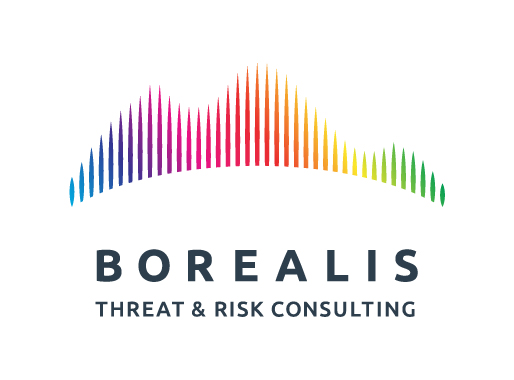Prior to 9/11 the academic study of terrorism, as far as I can tell, was a niche affair.
There were not that many scholars who devoted their lives to studying it. I suppose this was primarily because it was not seen as that important. This is not to imply that no one looked at it, just that it was not a major field as far as I understand it.
9/11 changed everything.
In the aftermath of that catastrophic attack everyone, and I mean EVERYONE, turned his or her attention to a whole host of issues surrounding terrorism. Historians. Political scientists. Sociologists. Psychologists. The list goes on and on. Some are very, very good. Some not so much.
But returning for a moment to that ‘pre’ period, there were four giants within American academe who were interested in terrorism well before 9/11. Those four are Brian Jenkins, Bruce Hoffman, David Rapoport – all of whom have appeared on one of my podcasts – and…
Martha Crenshaw
Martha Crenshaw (whom I invited a few days ago to chat but who said she was too busy. I completely understand).
Ms. Crenshaw just penned an op-ed in the New York Times entitled “I’ve Studied Terrorism for Over 40 Years. Let’s Talk About What Comes Next.” This piece is the latest in a series of offerings from a lot of people, some of whom appear to have jumped on the right wing extremism (RWE) bandwagon of late, especially in the wake of the January 6 riot at the US Capitol.
I do not know Ms. Crenshaw, never having had the honour to meet her, although I do know her by reputation (which is very high). I do, nevertheless, take umbrage of several things she wrote in the NYT piece.
To wit:
- “The problem the authorities faced on Jan. 6 was not an inability to respond, but failure to anticipate the threat” Wrong. US counterterrorism officials, I am sure, have been aware of RWE for some time. This was not an intelligence failure, it was most likely a political one, especially in the form of ex-President Trump who was a RWE supporter;
- “Many of those leading the charge at the Capitol are already well acquainted with violent tactics and the guns that go with them.” Maybe, but so are tens of millions of Americans. The availability of weapons in the US is a non-factor given their ubiquity;
- “Our preoccupation since the Sept. 11 attacks with the Islamist and jihadist threat may have blinded us to the fact that terrorism can start at home” Wrong, wrong, wrong, wrong, WRONG! We were not ‘preoccupied’ with jihadis, we were OCCUPIED with them. Hundreds of thousands of people, mostly Muslims, have been killed by jihadis in dozens of countries since 9/11 and hundreds continue to be killed in a handful of nations each week (for more information see my new feature This Week in Terrorism). Security intelligence and law enforcement organisations were never ‘preoccupied’ with jihadis, they were trying to identify and stop as many as they could before they could kill and maim. ‘Preoccupation’ dismisses this reality.
Counter Argument
In truth, there were probably not enough resources devoted soon enough to RWE cases: I am confident this is changing. But to say that the women and men doing CT were somehow preoccupied misses a major point. When you work in this field you allocate resources, which are finite, in ways where the predominant threat gets the lion’s share. That is how this works. And for the past two decades, that predominant threat has lain with Islamist terrorism, NOT RWE.
We may indeed be seeing a shift, although I remain skeptical. Yes, in some areas RWE may supersede the jihadis – perhaps the US is a good case here – but on a worldwide scale the latter predominate and will most likely continue to do so for the foreseeable future.
I may be coming across as a little sensitive, but I am not too happy when those who never worked CT – at an operational level – tell those who did how to do their jobs. Academics such as Ms. Crenshaw have made significant contributions to our collective understanding of terrorism and are sure to continue doing so. At the same time, however, they should be a little more circumspect in jumping to conclusions about what was done (or not done) and why it was done.
Ironically, Ms. Crenshaw noted near the end of her article that “Policymakers must resist demands for rapid, all-encompassing solutions. What is required is thoughtful consideration of our response options in light of the evidence we have in front of us.” Very well said Professor and I sincerely hope that the circus surrounding the panic over RWE does not lead to ‘rapid solutions’ but rather ‘thoughtful consideration’. It is just that when I hear those who should know better saying that RWE is worse than ISIS (Islamic State) I start to worry. There is simply no way the heinous monsters of ISIS can be compared to any right wing extremist group. Calls for a ‘war’ on RWE are insane: you would have thought we learned twenty years ago that declaring a war on terrorism was a bad idea.
Thank you Martha Crenshaw for your four decades of service. Like you, I have spent four decades looking at national security and public safety, albeit as a practitioner. We may subscribe to different magisteria, to borrow a term from the late US scientist Stephen Jay Gould (one of my favourites), and we may disagree on occasion, but I hope we can still exchange thoughts and opinions on this very important matter.
Read More on Right Wing Extremism

Is Canada’s security service focusing on the right terrorist threat?
The decision to shift counter terrorism resources from jihadis to RWE is ill-advised and may come back to bite us one day.

Raffaello Pantucci – What if many are getting the RWE problem wrong?
The accepted narrative in the West these days is that the greatest terrorist threat stems from the far right, no longer jihadis. But does it?

October 22, 2015: Sword-wielding terrorist attacks in Sweden
On October 22, 2015 a neo-Nazi armed with a sword killed a pupil and a teacher at a school in the Swedish town of Trollhattan.
